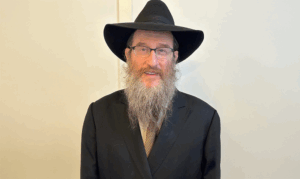Answers to your questions about life, religion and the Bible
Pastors get some of the most interesting questions from people they meet and people in their congregations. Here are a few that I have gotten over the years and via email for this column.
Dear Father Paul: I read your column over the internet, having moved from Fayetteville three years ago. I go to a large church here in Texas, and the pastor is always talking about “atonement.” What does atonement really mean in a religious sense? — B.K.
Dear B.K. The dictionary defines “atonement” as ”to make amends (payment) for a loss, a wrong or an injury.”
In the first three chapters of Genesis, in the Old Testament of the Bible, the story of creation is told by Moses. You probably remember the story … how God created the heavens and the earth. How he made the animals, the fish and the birds. His crowning creation, however, was man and woman. God made Adam and Eve, the first man and woman and placed them in a paradise called The Garden of Eden. There was no disease, pain or tears … no suffering in the garden or on the earth in those days because things were just as God wanted them to be.
God’s plan was that man would never get sick, never have troubles and never die. Instead, man would love and walk with God as a companion forever.
God gave Adam and Eve dominion over the earth and they could pretty much do as they pleased…with one exception. They could not eat the fruit of a certain tree called the “tree of the knowledge of good and evil.” God said, “if you do eat this fruit, you will die.” God also gave them a wonderful gift … the ability to freely choose whether or not to obey and follow God.
So death, both physical and spiritual, was the price that God promised for disobedience to this one and only rule for mankind. God had given his word, and he cannot lie. His word must come to pass.
You know the story. Adam and Eve listened to Satan and ate the forbidden fruit. They disobeyed God, they sinned. At that point all of mankind, from that day to this, has lived under the sentence of death … both physical death, including the pain and suffering that goes with physical death … but also spiritual death … eternal separation from God.
Because of his sin against God, mankind (as the old Southern saying goes) now found himself “in a heap of trouble.” The sin nature and punishment declared by God, indeed came upon both Adam and Eve. They died. But it also has been passed down to each and every person born on planet earth since that day. As an example, their son Cain, murdered his brother Abel. And in the eons since Adam and Eve, sin, and the sin nature, has become like a deadly virus that comes upon each one of us at birth. It’s almost like sin is part of our DNA. In short, we — every single one of us — now sin. We do evil in God’s sight. And thus, we too rightfully owe a debt, a punishment, a price …an “atonement,” if you will, that we, by ourselves, can never fully pay. That punishment, again, is physical and spiritual death. Basically, mankind and planet earth are doomed. Earth has become a fallen planet subject to all of Satan’s evil … his death, misery and suffering.
Is it any wonder we see death, murder, suffering and evil in the paper and on T.V?
But God wasn’t done. Yes, he could have just walked away and washed his hands of the whole mess … let us go on for eternity subject to death, misery and destruction. But he didn’t do that. Instead, he said, “I’ll fix this. I’ll die myself in their place. I’ll (myself) take on the sentence that I have pronounced.” So God himself took on the body and the nature of man (except for sin). “I’ll go to earth,” he said. “I’ll live there among them, as one of them. I’ll teach them how to live … and then I’ll die in their place. I’ll take upon myself the punishment that they are due. I’ll ‘atone’ for them.”
And B. K., he did just that, dying on the cross. God himself, as Jesus, came to the earth and “atoned” for us. We owed a debt we could not pay, and he paid a price he did not owe. This is the simple yet profound story of God’s love for us … the wonderful good news of the Gospel of Christ. Wow!
Perhaps Jesus himself says it best in the Gospel of John, Chapter 11. He said, “I am the resurrection and the life. He who believes in me will live, even though (in his flesh) he dies. And whoever lives and believes in me will never die.”
Do you have a question? Email it to me at [email protected] and I will try to answer it in the paper.
Father Paul Massey is pastor of Church of the Holy Cross Charismatic Episcopal Church in Fayetteville, Georgia …”The Ancient, Historic, Undivided Church For Today’s Generation.” More info, service times and directions are at www.holycrosschurch.wordpress.com. Why not worship with us this coming Sunday?











Leave a Comment
You must be logged in to post a comment.